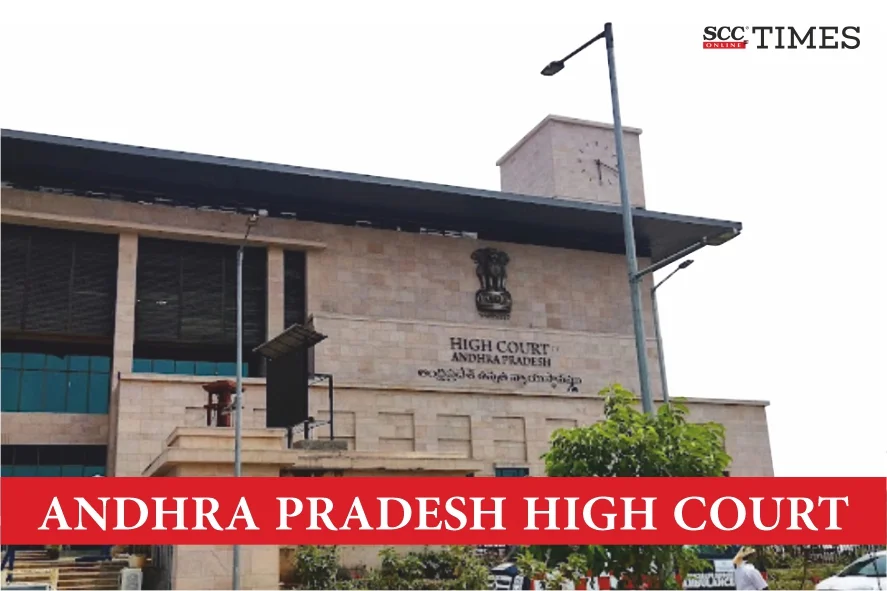Andhra Pradesh High Court: A criminal appeal was filed challenging the judgment dated 09-11-2022 passed by the II Additional Junior Civil Judge-cum-I Additional Judicial Magistrate of First Class, Palakol whereby the accused was acquitted of the offence punishable under Section 138 of the Negotiable Instruments Act, 1881 on the ground that the Trial Court erred in concluding that the accused did not owe a legally enforceable debt. Venkata Jyothirmai Pratapa, J., dismissed the appeal being devoid of merits and upheld the acquittal order.
According to the complainant, the accused had borrowed a sum of ₹3,00,000 from him as a hand loan. Upon several demands for repayment, the accused issued a cheque bearing No. 693337 dated 05-09-2007 for ₹3,00,000, drawn on ICICI Bank, Vijayawada. The complainant presented the said cheque for encashment at his banker, State Bank of Hyderabad, Palakol branch. However, the cheque was returned unpaid due to insufficient funds in the accused’s account, as evidenced by the return memo dated 11-09-2017.
Subsequently, the complainant issued a statutory legal notice to the accused on 03-10-2007, demanding payment of the cheque amount. Despite receipt of the notice, the accused neither responded nor made payment. Consequently, the complainant initiated a complaint under Section 138 of the Negotiable Instruments Act, alleging dishonour of cheque and failure to pay despite legal notice.
During the trial, the complainant examined himself as P.W.1 and marked Exs. P.1 to P.6 in support of his case. Notably, the defence did not lead to any oral or documentary evidence. After evaluating the evidence on record and hearing both parties, the Magistrate acquitted the accused by holding that the complainant had failed to establish the existence of a legally enforceable debt, an essential element for attracting liability under Section 138 of the NI Act.
Counsel for the appellant/complainant contended that the Trial Court had erroneously acquitted the accused despite the complainant having discharged his initial burden through oral testimony and documentary evidence. He asserted that the Trial Court had overlooked the presumption available under Sections 118 and 139 of the NI Act and prayed for setting aside the acquittal. On the other hand, Amicus Curiae for the accused opposed the appeal by pointing out the lack of proof regarding a legally enforceable debt. He argued that the complaint failed to mention the date of the alleged loan transaction and that the complainant had not produced any material to prove his financial capacity to lend ₹3,00,000. He relied on the decision of the Hon’ble Supreme Court in Basalingappa v. Mudibasappa, (2019) 5 SCC 418, to support the requirement of proving the existence of a legally enforceable debt or liability.
Upon scrutiny of the Trial Court’s judgment and the evidence on record, the Court noted that the acquittal was premised on the complainant’s failure to prove the existence of a legally enforceable debt. Specifically, it was observed that neither the complaint nor the chief examination of P.W.1 mentioned the date and place of the loan transaction. In cross-examination, P.W.1 admitted that although he maintained business account books recording all transactions, the alleged transaction with the accused was not reflected therein. Furthermore, P.W.1 admitted that he had no documentation to evidence the loan and could not even confirm the contents of the legal notice marked as Ex. P.5.
Significantly, P.W.1 failed to produce any material showing that he possessed ₹3,00,000 on the date of the purported loan, casting serious doubt on his financial capacity to lend such an amount. These admissions, coupled with the absence of corroborative documents, led the Court to conclude that the presumption under Section 139 of the NI Act stood rebutted. The Court found no error in the Trial Court’s reasoning and concluded that the complainant had indeed failed to establish a legally enforceable debt, which is a sine qua non for convicting an accused under Section 138 of the NI Act.
The Court upheld the Trial Court’s finding that the complainant did not establish the core requirement of a legally enforceable debt. Consequently, it declined to interfere with the acquittal order.
[Vardhineedi Sri Ramanjaneyulu v. Yeeda Sasibhushan, 2025 SCC OnLine AP 1801, decided on 09-04-2025]
Advocates who appeared in this case:
Counsel for the appellant: P. L. Narasimha Rao
Counsel for the respondent(s): Arrabolu Sai Naveen and Amicus Curiae



Supreme court view different from this judgement many judgment issue by supreme court, if the signature admitted nothing required